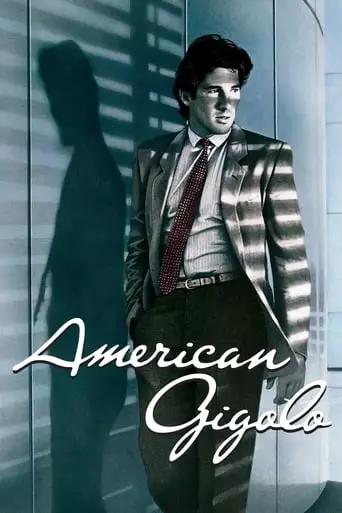
Julian makes a lucrative living as an escort to older women in the Los Angeles area. He begins a relationship with Michelle, a local politician’s wife, without expecting any pay. One of his clients is murdered and Detective Sunday begins pumping him for details on his different clients, something he is reluctant to do considering the nature of his work. Julian begins to suspect he’s being framed. Meanwhile Michelle begins to fall in love with him.
American Gigolo (1980), directed by Paul Schrader, is a neo-noir crime drama that explores the life of Julian Kaye, a high-end male escort played by Richard Gere, in Los Angeles. The film is stylish and highly influenced by European cinema, with themes of loneliness, identity, and the consequences of superficiality and materialism in modern society. As one of Richard Gere’s breakthrough roles, the film mixes seduction, crime, and a complicated relationship with its protagonist’s personal journey.
Julian Kaye is a professional gigolo who services wealthy women in Los Angeles. Living in a world of luxury and excess, he maintains a cold and business-like persona, yet beneath the surface, he struggles with loneliness and a yearning for real connection. His life becomes complicated when he is framed for the murder of a socialite. As he attempts to uncover the truth behind the crime, Julian forms an unexpected bond with Michelle (Lauren Hutton), the wife of a powerful politician. Their relationship develops from a transactional one to something deeper, though it is filled with ambiguity and complications.
Schrader’s direction captures the loneliness that pervades Julian’s life, focusing on the emptiness he feels despite his lavish surroundings. The movie’s exploration of identity is key, as Julian navigates his professional and personal relationships. The role of the gigolo itself—where sex becomes a transaction rather than an emotional experience—is framed as both a critique and a commentary on the shallowness of societal values, especially in the superficial world of Los Angeles.
The film delves into the idea of moral ambiguity and how characters, including Julian, attempt to find redemption or self-realization in a world that seems increasingly detached from true human connection. The use of visual motifs like mirrors and reflections reinforces the idea of fractured identity and self-perception, with Julian constantly questioning who he really is beyond his role as a lover for hire.
Watching American Gigolo may leave you with a sense of melancholy. The film explores the cost of living a life where superficiality and materialism override deeper emotional connections. By the end, you might feel conflicted—torn between sympathy for Julian’s vulnerability and frustration at the moral compromises he makes. The ambiguous ending will linger in your mind, prompting you to think about themes of redemption, identity, and the emptiness that can result from a life driven by superficial desires. You might also find yourself reflecting on how modern society defines success and the personal toll it takes on individuals seeking validation through wealth and appearance
